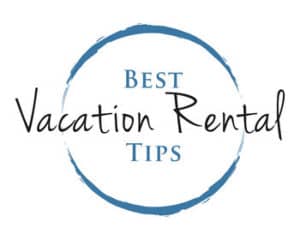The online era has opened many new realms of possibility for people to engage in business ventures, with one of these being the opportunity to market your vacation rental to a worldwide audience. However, it has also opened the door for everybody to be an expert or a critic, so negative guest reviews—or the lack thereof—can make your rental seem inferior or irrelevant.
How can you encourage guests to leave reviews? There are several effective ideas for getting guests to leave reviews, from highlighting reviews on your rental’s social media pages to straight-up asking. The best option, though, is excellent communication with your guests and making sure to follow up on every stay.
For better or for worse, prospective guests turn to reviews as their primary means of gaining information about your rental property. Just like likes and comments on social media, your vacation home is not relevant without a certain amount of customer interaction, so relationship management and working for feedback can turn into a full-time job.

8 Ways to Encourage Guests to Leave Reviews
The following are various ways in which you can encourage your guests to leave reviews for your vacation rental:
#1 – Practice Active Customer Relationship Management
The old-fashioned—and heavily flawed—school of thought in the business world is that while the point of sale ends a buyer/seller relationship for the seller, the point of sale begins the buyer/seller relationship for the buyer.
Before the advent of the internet, this approach may have had its merits. A property owner could market his or her rental and schmooze with the fancy sales pitch, and when they collected the money, they would be done and move on to cultivating the next tenant. The bitter taste that the customer may have experienced was not as significant a cause of concern for the property owner.
Now that the guest has the ability to share his or her opinion with the waiting world in a matter of seconds with the click of a button, the point of sale is actually more of a starting point in the buyer/seller relationship for the seller than it is for the buyer.
Simply put, to cultivate a positive review, a property owner’s job is just beginning once the booking is confirmed. While most rental owners and property managers work to get feedback and obtain reviews after the stay is complete, it is actually just as, if not more, important to receive feedback during the stay.
Whereas post-stay feedback cultivation can feel a little spammy and like a sales pitch to get a review or repeat business, feedback during the stay can make customers feel like they are getting instantly gratified and that you care for them as people. This can leave a very favorable impression in their minds and make leaving a review a priority.
During a guest stay, you can enhance your chances of receiving a review by reaching out and asking the following questions, just to name a few of many examples:
- Is everything going okay? Do you understand how to use all the appliances and temperature controls?
- Are there enough towels for you?
- Are there any aspects of the home that have differed from your expectations when making the booking, and can we do anything to get that resolved for you?
You will want to use an instant messenger or direct call for these in-stay follow-ups as opposed to an email that may not get seen during the stay. This can help ensure that any issues are resolved in a timely fashion.
Additionally, just because in-stay follow-ups are of critical importance does not mean that after-stay follow-ups are not also essential to customer relationship management. It is a good idea to give a guest a call or a polite email after each stay and let them know how much you enjoyed having him or her as a guest.
While asking for a review is not a bad idea during this communication, just the simple fact that you reached out and let the guest know that he or she is appreciated will likely serve as a reminder and elicit a review.

#2 – Respond to Guest Questions Immediately
Continuing with the concept of customer relationship management, it is of critical importance that you immediately respond to guest questions to have any chance of getting a positive review. While smart technology has opened the door for many business opportunities, it has also created an instant gratification culture where customers do not like to be left waiting.
With that, and with the amount that guests trust customer reviews, the following is an all-too-common scenario that takes place during a booking:
- A customer wants to go on vacation to Miami, so he or she downloads a popular vacation rental platform to find a place to stay.
- Your property, which carries a 4.9-star rating on the app, populates at the top of the customer’s search. He or she sees the high score, gives a quick scroll through the pictures, and books your property.
- When the guest shows up and sees that the pool is drained for maintenance, he or she, not having read the bold print in your listing that says the pool will be under maintenance from Date A to Date B, calls and wants to know what is going on with the pool.
When this scenario occurs, it is crucial to be available to remind the guest of the listing. If this does not assuage the guest and the pool is the reason he or she booked, try to offer a solution, such as transferring to another property with a pool (if you have it available) or providing a pass to a local hotel or community pool.
If you are not around to field concerns, make sure you find an agent who can be there in your stead. Promptly answering customer questions can be the difference in a positive review, a negative review, or no review at all.
#3 – Leave a Review for the Guest
With modern vacation rental platforms, such as Airbnb and Vrbo, hosts can leave a review for their guests. If this is the case, always be proactive and leave a glowing review for those who have completed a stay at your property (if it is merited). Some best practices for leaving guest reviews include the following:
- Personalize the review. Try to use the guest’s first name at some point in the review. This will add a touch of personal connection and add an element of authenticity to it.
- Make the review unique. Bots may be taking over the business world, but when it comes to online ratings, you will always want to make it known that the review is coming from a person. Something like, “Great guest! Highly recommend!” is super generic and appears to be pre-populated, making the review seem less genuine.
- Be prompt. The faster you leave your guest a review, the faster they are likely to return the favor, which can be a big deal if you are working to build your credibility score.
If you are not using a platform that has built-in review features (for example, if you booked your property via word of mouth or through some other form of offline advertisement) ask the guest if it would be okay to include him, her, the family, or party on your property’s website or social media pages.
If they consent to a picture, you could post it on one of your platforms with an exciting caption thanking them for their stay. Not only can this paint your property in a good light, but it will likely make your guests feel special and encourage them to use multiple outlets to leave reviews for your property.
#4 – Share Your Reviews
Human psychology is a complex matter, and social media delves deeply into the human need for affirmation. By sharing reviews on social media and your rental’s website, you can accomplish a couple of important things regarding your rental property:
- You advertise to prospective customers that your rental is relevant and worth a review.
- You make other former guests, who may not have left a review yet, see that there is a chance that they could be featured on your property’s platforms. Since people generally love this type of attention, it will increase the chances they take action and leave a review.
#5 – Ask for a Review
While this seems extremely simple and obvious, the reality is that many people have a hard time asking for things. Whether it be asking a potential romantic partner on a date or asking your employer for extra time off, most people are so afraid of a negative response that they just never pull the trigger and get to the point.
More times than not, the answer to your question is going to be “yes.” Contemporary customers suffer from information overload, and even though they have every intention of leaving a review, your rental’s review gets lost in the shuffle of the multitude of other products they have purchased. A simple nudge to the review page could be all that they need.
When following up with your guests, a great way to ask for a review is to say something to the effect of, “It was a pleasure serving you during your stay, and we are so happy that you enjoyed your experience. As we look to grow our business, online reviews are extremely important. Would you consider leaving a review to help us in these efforts?”
If you are following up with a customer who is on the fence about his or her experience, you may want to take the following approach: “I am sorry that XYZ was not ideal for you, but if we were able to offer a XX% refund back to your card, would that make things right and help you consider leaving us a review as we look to grow our business?”
While refunds and discounts may be hard to stomach for hosts, especially in the beginning, when every ounce of revenue is precious and hard to come by, the cost of goodwill is worth it, as a positive review will help recoup that cash in the form of future sales.

#6 – The More, The Merrier
Continuing with the look into human psychology, another important concept is herd mentality. People are more likely to do something if they see other people doing it. As such, past guests are more likely to leave a review if there has been a strong precedent set by others.
You may be thinking that a bunch of negative reviews may be a bad thing. While this is true, a few negative reviews mixed in with mostly positive reviews will actually be better for your property than very few positive reviews. For example, a 4.8-star rating over 500 reviews will generate more business for you than a 5.0-rating over three reviews.
To continue the discussion of negative reviews, it is important to remember that not all negative reviews are truly negative if handled correctly. Here are a few points to consider:
- Understand the difference between negative reviews and hostile reviews. If a review offers constructive criticism, it can help you improve your business and can generally be left alone. A hostile review that makes unwarranted and unnecessary attacks should be moderated and removed, where applicable.
- Promptly and professionally addressing negative reviews can show other potential clients, as they skim through the reviews, that you take their concerns seriously.
- If customers are happy with the way their review is received, they may consider upgrading it, which keeps your total review number high while improving your rental’s overall rating.
While more reviews lead to more reviews, the temptation can be great to go to illicit means to obtain them. This includes creating fake user accounts to leave reviews on your own site or paying a company that uses bots to leave reviews on your page for stays that never happened.
Not only is this behavior unethical, but it is also even considered illegal in some locations and can lead to your business facing false advertising charges. Also, as word spreads quickly on the internet, your business could suffer if it is known that your reviews are not authentic.
#7 – Offer Incentives for Legitimate Stays
The best reviews are honest, articulate, specific, helpful, and unsolicited, coming from customers who have no connection to your business and are genuinely moved to offer their opinion. While this is easily obtainable for large, well-established companies that have the review ball rolling, these types of reviews can be challenging to get for lesser-known entities.
While big-time review solicitation is frowned upon and “illegal” in some situations, it is widely prevalent and useful when practiced tactfully. In fact, things such as follow-up communication and emails with links to the review page are technically considered solicitation, although almost every successful business uses them.
Big-time review solicitation is highly unethical, almost as much as posting fake reviews or buying reviews. This would include something like saying, “Positive reviews will receive $200 off their stay.”
However, something with a light reward, such as “Receive a 10% discount code to our business partner upon submission of a review,” is generally considered tactful and professional. Think about the concept of how many grocery stores offer fuel points or car wash discounts for completing a feedback survey as a good starting point for what is acceptable.
If you feel like you need to incentivize guests to leave a review, make sure you use the following best practices to avoid scrutiny and/or community ire:
- Keep the incentive light. The incentive should be just enough to trigger your guest’s memory and/or interest in leaving a review. Anything that represents a significant financial gain or penalty for completing or not completing a review should be avoided.
- Use neutral language. Never include language that would suggest incentives are only offered for positive reviews. Make it clear that you want honest feedback.
- Offer the incentive one time only. Communicate the offer clearly, but only bring it up one time. Do not spam guests with incentives for leaving a review.

#8 – Keep Your Rental Occupancy High
The bottom line is that more customers mean more opportunities for reviews. More customers can be a little challenging for vacation properties, so review opportunities need to be leveraged to the fullest.
For example, a company that sells smartphone chargers theoretically can make unlimited sales. However, rental properties can only have one customer at a time. As such, if your property is not consistently booked, you may only get the opportunity for a handful of reviews a year.
As it is impossible to receive a 100% review rate, you need to keep your property occupied for as many days as possible to build a strong pool for potential reviews. Here are some ideas to help in this regard:
- Limit your property to short stays early on. While it is hard to forfeit the guaranteed income of a long-term client, more frequent turnover means more customers to leave reviews. Once a good review base is established, then you can open up your property for more extended stays.
- List your property on a large number of vacation rental platforms, social media, and offline sources.
- Curate past reviews and feature them prominently in your marketing efforts.

